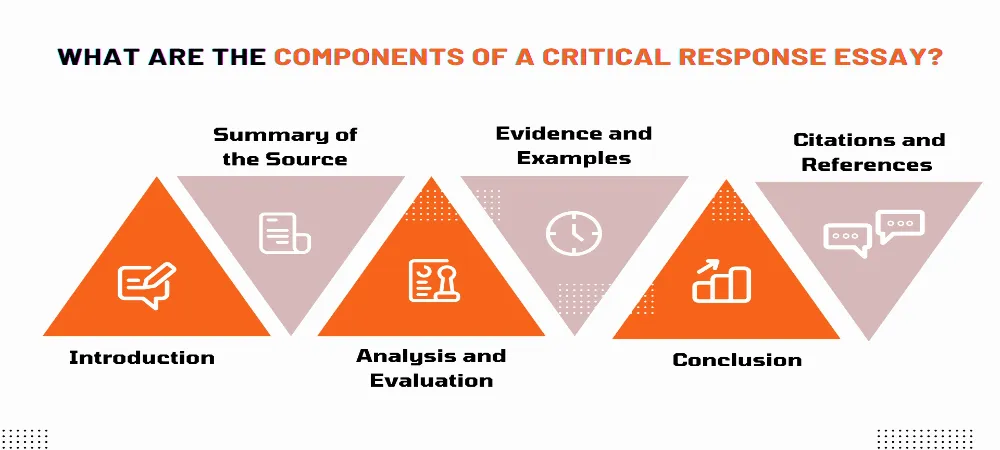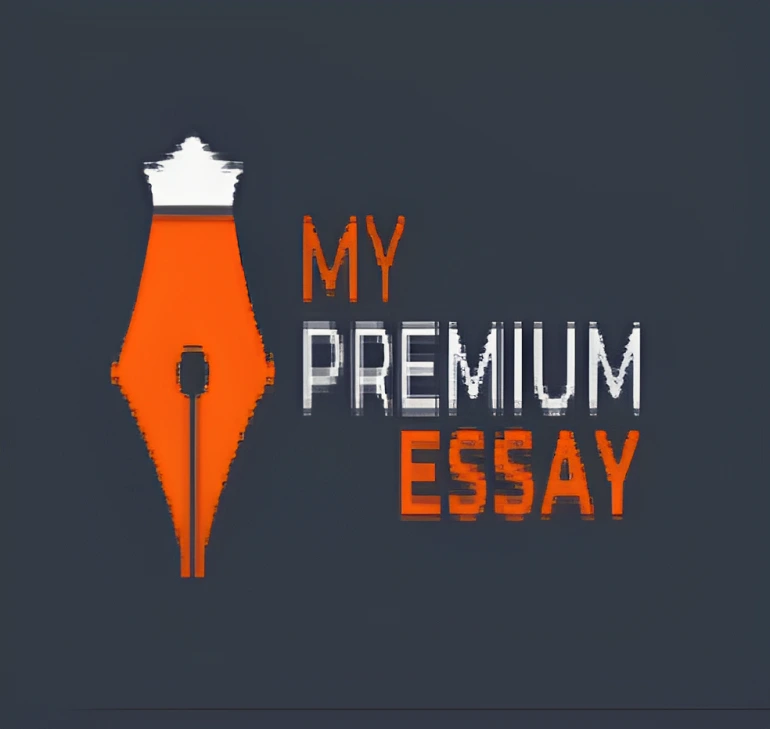Writing a critical response essay is similar to stepping into a vibrant dialogue with ideas and perspectives. This form of essay invites writers to engage deeply with their subject and contribute a unique voice to ongoing intellectual conversations. It is a type of academic writing that requires the writer to analyze and evaluate a piece of literature, film, article, or other forms of media. So, it involves a careful reading or viewing of the work in question, followed by a thoughtful interpretation and personal reaction to it.
The purpose of a critical response essay is multi-fold. It aims to deepen the reader's understanding of the work by interpreting its themes, messages, and techniques. The essay evaluates the effectiveness of the work's arguments, creative decisions, and overall impact. It encourages critical thinking, pushing the writer to analyze and question the work rather than just passively consume it. The essay serves as a medium for the writer to communicate their ideas and understanding of the work to others.

In this blog post we will discuss the components that form its core, the structure that shapes its flow, and the tips that can elevate its quality.
What are the Components of a Critical Response Essay?
Writing a critical response essay can be a rewarding exercise in critical thinking and expression. Here are some additional tips on how to write a critical analysis essay:

-
1 Introduction: This section introduces the work being critiqued and presents the thesis statement reflecting a perspective or interpretation of the text. It sets the tone and context for the analysis.
-
2 Summary of the Source: A brief summary of the main points of the original work, providing necessary context for the reader.
-
3 Analysis and Evaluation: The core of the essay, where the writer critically analyzes and evaluates the work. This includes discussing themes, techniques, strengths, weaknesses, and the writer's personal reactions.
-
4 Evidence and Examples: Use of specific examples and evidence from the source material to support the analysis and response.
-
5 Conclusion: Summarizes the main points made in the essay and restates the thesis in light of the analysis provided. It should provide closure to the essay and may also offer some reflection on the broader implications or significance of the analysis.
-
6 Citations and References: Proper citation of any sources used, including the work being responded to, following the appropriate academic citation style.
Overall, a critical response essay is an analytical, reflective, and personal piece of writing that combines objective analysis with subjective response.
Read More: How To Write A College Essay?
How to Structure Your Critical Response Essay?
Writing a critical response essay involves analyzing and responding to a piece of writing, such as an article, book, film, or another form of media. Here's a step-by-step guide to writing an effective critical response essay:
-
Understand the Assignment: Make sure you fully understand the prompt and what is expected of you. Know whether you're being asked to analyze, evaluate, interpret, or apply the material you are responding to.
-
Read and Analyze the Source Material: Carefully read or view the material you will be writing about. As you do, take notes on its main points, arguments, and any particular aspects you find significant. Pay attention to the structure, themes, and techniques used by the author.
-
Develop a Thesis Statement: Your thesis should be a clear, concise statement that expresses your main response or argument about the source material. It should reflect your perspective and guide the rest of your essay.
-
Outline Your Essay: Plan the structure of your essay. Typically, a critical response essay will include:
-
An introduction that includes your thesis statement.
-
A summary of the work being critiqued, providing enough context for your readers.
-
A critical analysis, where you discuss your reactions, interpretations, and evaluation of the source material, supporting your points with evidence.
-
A conclusion that summarizes your main points and restates the thesis in light of the analysis you've presented.
-
-
Write the Introduction: Start with an engaging opening that draws the reader in. Provide some background on the work you’re responding to, and present your thesis statement.
-
Summarize the Source Material: Briefly describe the main points of the work you are responding to, setting the stage for your critical analysis. Be objective and concise.
-
Develop Your Analysis: This is the heart of your essay. Discuss your thoughts, reactions, and arguments about the source material. Use specific examples and quotations from the source to support your points. Analyze the effectiveness of the author's arguments, the style of writing, the structure, and other significant elements.
-
Write the Conclusion: Summarize your main points and restate your thesis. Reflect on the broader implications of your analysis. The conclusion should give a sense of closure and leave the reader with something to think about.
-
Revise and Edit: After writing your draft, take a break before revising. Look for clarity, coherence, and consistency in your arguments. Check for grammatical errors and ensure that your essay flows logically.
-
Cite Sources Appropriately: If you refer to or quote from the source material or other works, make sure to cite them correctly according to the specified citation style (APA, MLA, Chicago, etc.).

Need help with your essay?
let us help you craft compelling and articulate responses!
Remember, a critical response essay is not just about giving a summary of the source material; it's about engaging with and responding to the text in a thoughtful and analytical manner.
Also read: How To Write A Narrative Essay?
Additional Tips for Writing Critical Response Essay
Writing a critical response essay can be a rewarding exercise in critical thinking and
expression.
Here are some additional tips on how to write a critical analysis essay:
-
1 Read Actively and Critically: Before you start writing, engage deeply with the source material. Read or view it multiple times, if possible, to fully understand its nuances. Take notes, underline key points, and question the text as you go along.
-
2 Understand the Context: Research the background of the work you are critiquing. Understanding the historical, cultural, or social context can provide valuable insights into the text and enrich your analysis.
-
3 Balance Summary and Analysis: While it's necessary to include a brief summary of the work, don't let it dominate your essay. The focus should be on your analysis and response.
-
4 Use Evidence Wisely: Support your points with relevant examples from the text. However, avoid over-quoting or merely summarizing large sections of the source. Your analysis should interpret the evidence, not just present it.
-
5 Engage with Different Perspectives: Consider other interpretations of the text and address them in your essay. This shows that you've thought critically about the material and understand its complexity.
-
6 Maintain an Academic Tone: While it's important to express your personal perspective, remember to maintain a formal, academic tone. Avoid slang and ensure your essay is free from biases and unsupported generalizations.
-
7 Structure Your Arguments Clearly: Organize your essay in a logical manner. Each paragraph should have a clear point that ties back to your thesis statement. Use transitions to connect your ideas smoothly.
-
8 Reflect Your Voice and Insight: While academic essays require formal language, they also benefit from a personal touch. Your unique perspective is valuable; make sure it shines through your analysis and argumentation.
By following these tips, you can enhance the quality of your critical response essay and engage more deeply with the text you're analyzing.
As we draw this discussion to a close, remember that the insights and perspectives shared here are just the beginning. To buy an essay online consult MyPremiumEssay, our commitment to deepening understanding and fostering intellectual growth continues. Join us as we explore more topics and expand our horizons together.




